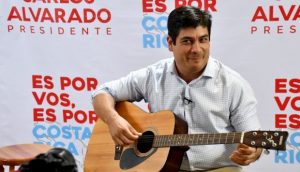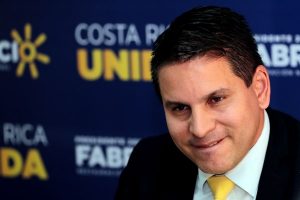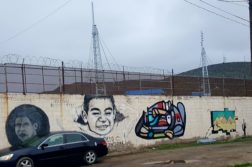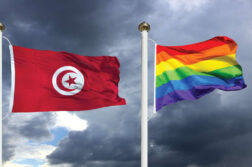Jorge Solano


COSTA RICA is widely praised as the longest-running democracy in the Latin America and has always been among the leading nations in the Economist’s Democracy Index. But earlier this year, our democracy was hit by a phenomenon that’s spreading around the world: the rise of extreme conservatism. The emergence of right-wing evangelical preacher Fabricio Alvarado as the leading candidate in the first round of voting last March gave us all a scare, even if he was soundly defeated by Carlos Alvarado of the Citizens’ Action Party in the final vote. (Yes, both candidates have the surname Alvarado.)
As radical right-wing politicians in the world usually do, the candidate of the Partido Restauracion Nacional (National Restoration Party or NRP) stepped out of the shadows armed with a political discourse of hatred aimed at a particular minority: the LGBT community. Alvarado’s bigoted tone became even more shrill in reaction to a decision by the Inter-American Court of Human Rights to approve the legality of same-sex marriage as proposed by the current Costa Rican government. This decision would also give transgender people the right to change their legal gender.
This vindication of LGBT rights became the fodder for Fabricio Alvarado’s ultra-conservative views to spread like wildfire. An example of a statement he offered to the media should suffice: “People who want to get out of homosexuality must have space where they can be treated and restored.” His speech pathologized LGBT people as “sick” and in need of intervention to be saved and healed.
Many foreigners may wonder why Costa Ricans are supporting such a movement. The answer is simple: these are difficult and uncertain times for many Costa Ricans, and in such times people look for someone to blame, whether based on skin color, gender, class, nationality, religion, legal status and sexual orientation. People do not tend to engage in such polarizations when things are going well, but in times when the future looks uncertain and they fear the unknown, some percentage of people will be susceptible to messages of hatred directed toward “the other.”
The be precise, that percentage in the first-round vote last March was 24.9 for Fabricio Alvarado, the right-wing candidate, with Carlos Alvarado coming in second with 21.7 percent. That was an unnerving moment, and it seemed possible that Costa Rica’s reputation as a haven of tolerance and human rights was about to go up in smoke. Fortunately, in the run-off enough of the remaining vote shifted to Carlos Alvarado to make him the winner with 60.7 percent. Still, it is worth pausing to notice that fully 39.3 percent of Costa Ricans ended up voting for Alvarado.
In the same-sex marriage matters, the international community assumed that Carlos Alvarado’s victory was automatically a “yes” for the legal consultation of the Inter-American Court of Human Rights, which was approved before the elections. However, due to the old and inefficient Costa Rican legislative system, the matter has to pass through various legal hurdles involving the Electoral Court, among other bodies, before ending up before the Constitutional Chamber of Supreme Court. I spoke to Enrique Sanchez, the first openly gay deputy elected to the Legislative Assembly, who said: “It’s a matter of time. Most probably the Supreme Court will approve same-sex marriage. If it does not, Costa Rica once again will be exposed to another judgment by the Inter-American Court, as happened with the IVF [in-vitro fertilization] some years ago.”
Sanchez is prioritizing an anti-discrimination act to protect minority groups, including LGBT people, immigrants, indigenous groups, and others. Another of his proposals is to work with international organizations to create a database of LGBT demographic information that would include social indicators such as educational level, profession, and access to legal services, in order to see where this population is vulnerable. Further, President Alvarado has recently assigned a commissioner for LGBT issues to coordinate actions needed for the welfare of this population. Commented Sanchez on these initiatives: “Human Rights are progressive. There is no turning back.”
Jorge Solano holds a master’s degree in International Affairs from the Institute of Political Studies of Paris (Sciences Po, Paris).






